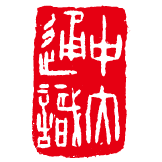UGED3205 Engendering Chinese Culture
Time
Lecture: Tuesdays 10:30 a.m. - 12:15 p.m.
Tutorial: Tuesdays 10:30 a.m. - 12:15 p.m.
Instructor
Dr. WONG Yuk Ying
Medium of Instruction
English
Course Description
Institutions such as lineage and family, marriage, religion, medical practices, art, education and politics shape our life patterns as well as social mores. Gender, as one of the building blocks of society and culture, shapes our values and is deeply embedded in our daily lives, and it weaves an intricate ideological fabric that strongly impacts our thoughts, feelings and action.
Through the exploration of selected issues in Chinese culture which are significant and relevant to everyday life, this course introduces to students historical materials which relate to, and contemporary research on, the role of gender in the making of history and culture, and how history and culture work to shape our understanding of gender. As they participate in the learning activities of the course, students will be gradually led to understand Chinese culture from a new perspective. Furthermore, students will have a chance to reflect on long-held values and beliefs which they themselves have acquired as members of this culture, or which they witness in the daily life of the community around them.
While helping students to further understand the Chinese culture and history in a new gendered perspective, this course resonates with the Sustainable Development Goals (SDGs) adopted by United Nations, including SDG 5 (Gender Equality) and SDG 10 (Reduced Inequalities). Students reflect on their various values and concepts in daily life through this course, and become a global citizen with an open mind.
Learning Outcome
- Understand important Chinese culture issues from a gender perspective.
- Understand the historical construction, development and current situations of inequalities related to sexuality and gender.
- Analyze the social and cultural origins of concepts and values related to sexuality and gender, and be able to reflect on them.
- Understand the origin of concepts about sex and gender and able to reflect on it critically.
- Produce an adequate synthesis of the different evaluations of the society and culture with diverse perspectives.
- Articulate a more objective and fair evaluation of related issues.





